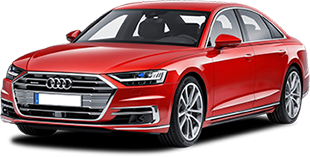BMW - X6 xDrive30d - Brochure - 2022 - 2022
Get your hands on the complete BMW factory workshop software
Download nowGet your hands on the Complete BMW Factory Workshop Software
Download nowGet notified when we add a new BMWX6 Manual
We cover 60 BMW vehicles, were you looking for one of these?

BMW - 320D - Owners Manual - 2005 - 2020

1999-06--BMW--Z3 Roadster--6 Cylinders 3.0L FI DOHC--32751102

1999-06--BMW--Z4--6 Cylinders 2.5L MFI DOHC--32881202

BMW - X5 - Workshop Manual - 2006 - 2013

1999-06--BMW--Z3--6 Cylinders 2.8L MFI DOHC--32536602

1999-06--BMW--325xi AWD--6 Cylinders 2.5L MFI DOHC--32750501

BMW BMW 2 Series BMW 218 Owners Manuals

BMW BMW X Series BMW X1 Owners Manuals

BMW - i3 - Workshop Manual - 2015 - 2015

BMW - 730i - Parts Catalogue - 1988 - 2020

1999-06--BMW--M3--6 Cylinders 3.2L MFI DOHC--32536501

BMW - X3 2.5i - Workshop Manual - 2004 - 2006

BMW BMW 1 Series BMW 116 Owners Manuals

BMW - 318i Sedan - Workshop Manual - 1992 - 1998

BMW - 320i - Owners Manual - 2006 - 2011

BMW - X3 xDrive28i - Workshop Manual - 2011 - 2020

1999-06--BMW--Z4--6 Cylinders 3.0L FI DOHC--32985902

BMW BMW 5 Series BMW 520 Workshop Manuals

1999-06--BMW--325i--6 Cylinders 2.5L MFI DOHC--32846801

1999-06--BMW--330Ci--6 Cylinders 3.0L FI DOHC--32750201

1999-06--BMW--Z3--6 Cylinders 2.5L MFI DOHC--32536603

BMW - 318i - Workshop Manual - 1990 - 2000

BMW BMW Z Series BMW Z3 Workshop Manuals

1999-06--BMW--525i--6 Cylinders 2.5L MFI DOHC--32985001

BMW - 328i - Workshop Manual - 1999 - 2005

BMW - 118i - Owners Manual - 2004 - 2011

1999-06--BMW--M5--10 Cylinders 5.0L MFI DOHC--33044401

BMW - 540i - Parts Catalogue - 1997 - 2003

BMW - 2002 - Workshop Manual - 1972 - 1972

BMW - 328xi - Workshop Manual - 2007 - 2020

BMW BMW X Series BMW X5 Workshop Manuals

BMW - 335i - Workshop Manual - 2009 - 2009

1999-06--BMW--325xi AWD--6 Cylinders 3.0L FI DOHC--33064001

1999-06--BMW--323is--6 Cylinders 2.5L MFI DOHC--32536001

1999-06--BMW--760Li--12 Cylinders 6.0L MFI DOHC--32920201

2000-05--BMW--X5 AWD--6 Cylinders 3.0L FI DOHC--32986103

BMW - 320D - Workshop Manual - 2008 - 2008

2000-05--BMW--X5 AWD--8 Cylinders 4.4L MFI DOHC--32605001

1999-06--BMW--Z4--6 Cylinders 2.5L MFI DOHC--32920501

BMW - 635CSi - Workshop Manual - 1985 - 1985

BMW - Z4 - Workshop Manual - (2003)

1999-06--BMW--Z4 M Coupe--6 Cylinders 3.2L MFI DOHC--33091901

BMW - X5 - Parts Catalogue - 2000 - 2017

BMW BMW 5 Series BMW 535 Workshop Manuals

BMW - Z3 roadster 2.5i - Owners Manual - 2000 - 2000

BMW - Z3 - Parts Catalogue - 1996 - 2003

BMW - 2002Tii - Workshop Manual - 1975 - 1975

1999-06--BMW--M3--6 Cylinders 3.2L MFI DOHC--32985801

BMW - M4 - Workshop Manual - 2016 - 2016

BMW - Z4 - Workshop Manual - (2003)

BMW - 335i - Workshop Manual - 2007 - 2007

BMW - 318i - Owners Manual - 2001 - 2005

BMW - X5 4.4i - Workshop Manual - 2000 - 2006

1970-1988--BMW--635CSi--6 Cylinders 3.5L MFI SOHC--32146501

BMW - 325i - Owners Manual - 2003 - 2003

BMW - Z3 - Repair Guide - (2000)

BMW - X3 - Workshop Manual - 2016 - 2016

BMW - Z3 2.8 - Workshop Manual - 1997 - 2000

BMW - Z4 - Repair Guide - (2003)

BMW - M3 Sedan - Owners Manual - 1992 - 1998

BMW - 320D - Owners Manual - 2005 - 2020

1999-06--BMW--Z3 Roadster--6 Cylinders 3.0L FI DOHC--32751102

1999-06--BMW--Z4--6 Cylinders 2.5L MFI DOHC--32881202

BMW - X5 - Workshop Manual - 2006 - 2013

1999-06--BMW--Z3--6 Cylinders 2.8L MFI DOHC--32536602

1999-06--BMW--325xi AWD--6 Cylinders 2.5L MFI DOHC--32750501

BMW BMW 2 Series BMW 218 Owners Manuals

BMW BMW X Series BMW X1 Owners Manuals

BMW - i3 - Workshop Manual - 2015 - 2015








































































































































































































































